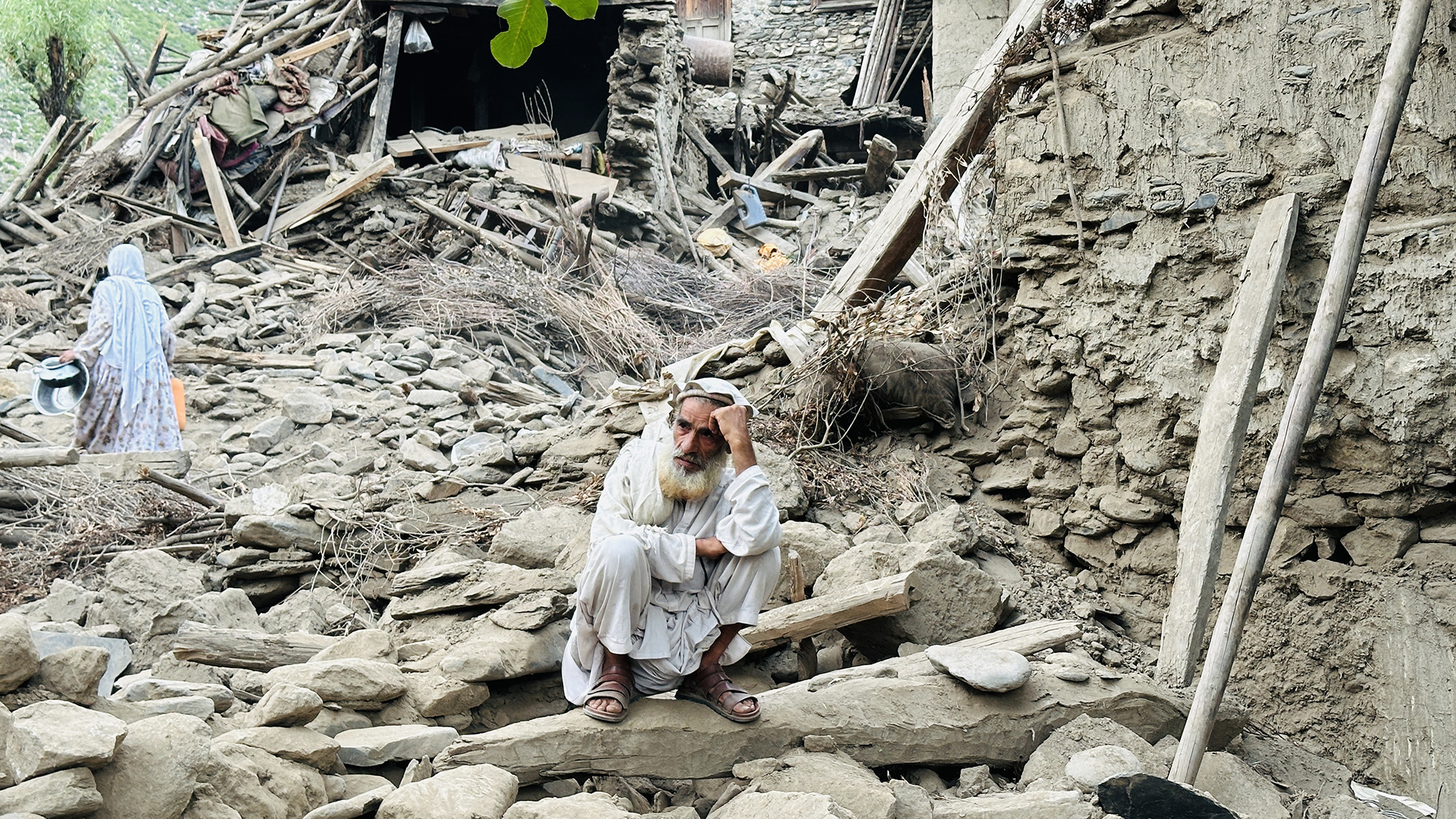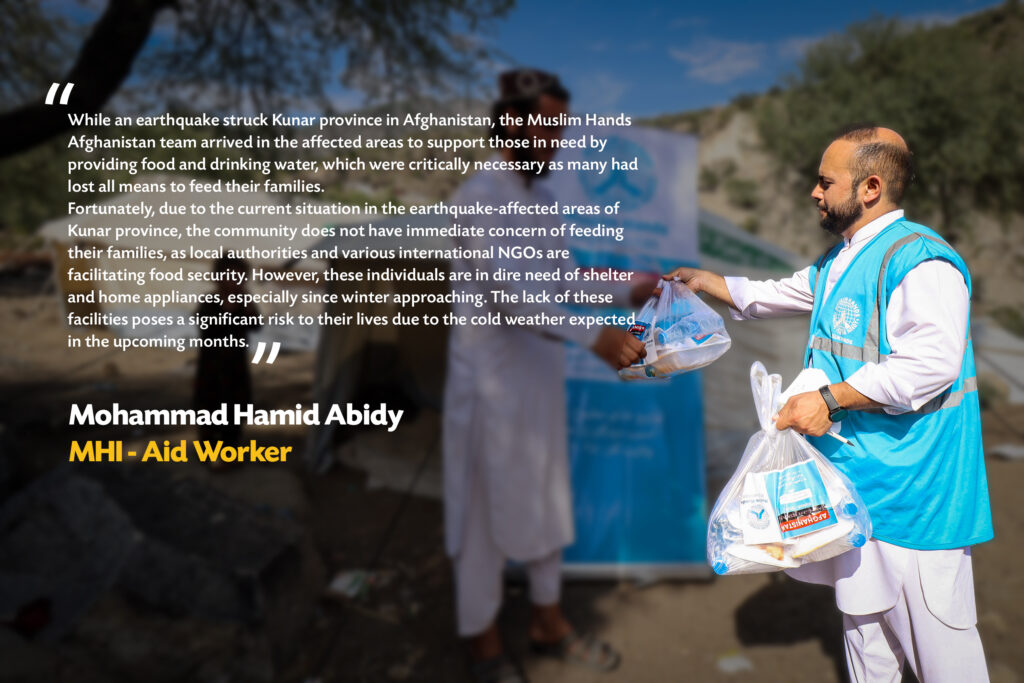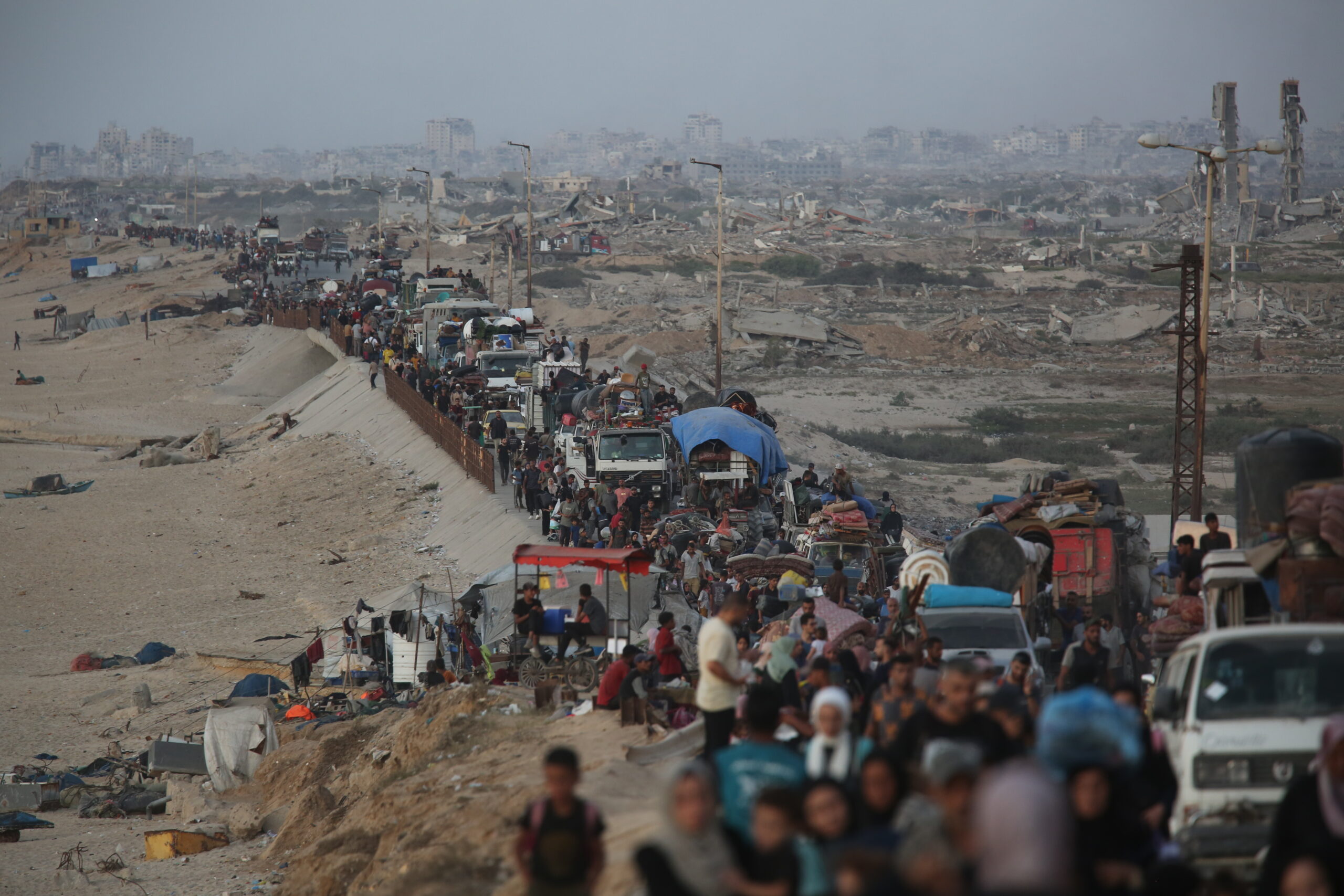
Elham Asaad Buaras
More than 1,400 people have been killed and over 3,000 injured in eastern Afghanistan after a powerful earthquake struck on August 31, the Taliban government confirmed. The disaster, one of the deadliest in recent years, has left villages in ruins and triggered desperate rescue efforts amid blocked roads and landslides.
Two days later a magnitude-5.2 aftershock shook the same region. The US Geological Survey reported its epicentre 21 miles from Jalalabad, Afghanistan’s fifth-largest city, at a shallow depth of just 10km. Though no new casualties or damage were reported, residents in Sawkai district of Kunar province described feeling a strong jolt.
Rescue operations in the mountainous terrain remain treacherous. Helicopters have been deployed to reach remote villages where families are believed trapped beneath rubble. In Kunar’s Mazar valley, one Taliban official said a helicopter was forced to abort its landing after three failed attempts due to rough terrain.
“We were all in deep, peaceful sleep when… a sudden tremor struck, and the world turned upside down,” said survivor Bas Marjana. Pulled from the ruins of her home, she lost eight grandchildren and her daughter-in-law.
Local and international NGOs are already mobilizing on the ground. Muslim Hands Afghanistan, which has an operational medical camp in the worst-hit province of Kunar, has announced the next phase of its response will target the most affected districts.

Country Director Moh. Asif Foulad told The Muslim News that the plan includes “food parcels for 350 families” and “kitchen utensil packages for 350 households,” alongside hygiene kits, prioritising the devastated villages in the Chuaki and Nurgal districts.
At Jalalabad’s Nangrahar Regional Hospital, Nader Khan wept as he described how the quake claimed two sons and two daughters-in-law. “I injured my head and spine, so I couldn’t move to save them… I don’t know what has happened to the bodies of my sons,” he said.
Another survivor, Mir Zaman, recalled digging out his dead children with his own hands. “It was dark. There was no light. Someone lent me a lamp, and then I used a shovel and pickaxe to dig them out. There was no-one to help because everyone was affected. So many people died in my village. Some are still buried. Whole families have died.”
Aid agencies warn of an urgent humanitarian emergency. Save the Children dispatched medical teams to remote areas where survivors lack food, water and shelter. One volunteer, identified as Dr Shaheer, said: “The situation of children is severe. If they do not receive support, children in the earthquake-affected areas will face nutrition, health, and other challenges.”
Some families have already resorted to drinking river water. Two-and-a-half-year-old Maiwand, injured in the head and suffering blood loss, was taken to hospital by his uncle. “You can see his situation. It’s so tragic. The earthquake was deadly. I want the doctors to treat him, to cure him,” said Khawat Gul.
At Spinghar Medical in Jalalabad, Dr Noor Saba reported that half of the 100 patients admitted since Sunday were women. “Some had head injuries, others had spinal or other body parts injured. Seven or eight underwent surgery. One had a fractured leg, another had a broken back,” she said, adding that 15 new patients arrived on September 2.
Médecins Sans Frontières (MSF) teams have reached hospitals in Nangarhar and Laghman provinces, but facilities are overwhelmed. “The two hospitals were already working at full capacity before the earthquake. We saw many patients treated in the corridors and health workers in need of supplies,” said MSF deputy medical coordinator Fazal Hadi, calling for the humanitarian response to “scale up urgently.”
The Taliban government – recognised internationally only by Russia – has appealed for urgent aid. The UN released emergency funds, and the UK pledged £1m ($1.3m) through the UN Population Fund and the International Red Cross. “Aid from the UK will be channelled through experienced partners,” Foreign Secretary David Lammy said.
India has delivered 1,000 tents to Kabul and is transporting 15 tonnes of food to Kunar province. China and Switzerland have also promised assistance.
Afghanistan, already reeling from severe drought and what the UN describes as unprecedented hunger, faces massive aid cuts – particularly from the US this year – that have left millions vulnerable. For survivors such as Mir Zaman and Nader Khan, the quake has compounded despair in a country where humanitarian needs were already at breaking point.“This disaster couldn’t have come at a worse time,” said one aid worker in Jalalabad.
Photo: A man stands outside near destroyed houses following a 6.0-magnitude earthquake in Afghanistan’s eastern Kunar province. The quake struck central Afghanistan on August 31, killing at least 1,400 people and injuring 3,251, with widespread devastation reported across Kunar and neighbouring Nangarhar provinces. (Credit: Haroon Sabawoon/AA)


